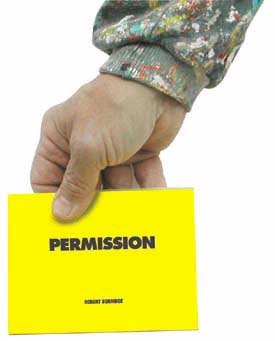Lee Hawkins of Northampton says she's lived a good life, and she wants a good death too. That's why, at the age of 89, she's planning it now. Laurie Loisel, the Gazette managing editor, spent weeks speaking with Hawkins about why she plans, at some point, to bring death on her own terms. Coverage on Page One and in the Families section. Wednesday.It is hard not to wish Hawkins well as she plans her death. Making a conscious choice about what no one could choose -- any more than they could refuse -- sounds pretty adult. But it also reminds me a bit of the wryly-apt remark once made by olcharlie, an occasional visitor to this blog: "I'd like to die with a smile on my face, but I guess I'll take what I get."
From a newspaper point of view, self-imposed or assisted suicide is a good topic. It is one of those topics that is exciting because death is pretty exciting even if it is kept tightly under wraps: The bedrock seems to be, "No one knows and I don't want to die." It's a no-no topic. Death is kept at a stylized and ritualized distance ... it can't be known and it can't be controlled but if you talk about it then there is an assertion of knowledge and, more important, there is a warming control.
It all made me think of permission slips and how much of anyone's life might be filled out with permission from others. Just taking a look -- not criticizing or approving.
In the third grade, kids generally have to ask permission from the teacher to go to the bathroom. Sometimes I wonder if the habit ever wore off. The teacher grants permission because if someone has to go to the bathroom, no permission is required. A kid can be excused or s/he can pee in his or her pants. How much of the rest of life is like this?
Lee Hawkins will die with or without a plan of attack, with or without a long series of interviews, with or without the latest outing of a well-closeted topic. Everyone breathes and talks and walks and sleeps and eats without any permission slip required. As a social cement, permission may seem to provide an improvement on the facts, but I think it's a good idea to examine the extent to which anyone might rely on such permissions, such agreements, such debates, such social refinements.
Does anyone reading these words need permission? Does anyone not reading these words need permission? Does anyone need permission to make a choice? How scary might it be if permissions lost their footing and there were neither a granting or withholding of permission because, well, no permission were necessary? Sure, anyone might grant permission to find a topic or reality "meaningful" or "profound" or "wracking" ... but isn't permission an add-on or adjunct? True, without permission slips, there is room to fuck up royally, but life or other people are invariably on hand to point out the gaffs anyone might make.
I see no particular reason not to seek out permission slips -- not to plan and describe and assess and believe -- but I do think it would be worthwhile to sort out how usefully appropriate such permission slips might be.
Permission to die, please?
Permission to live, please?
Permission to laugh and love and weep, please?
Who's kidding whom here?

No comments:
Post a Comment